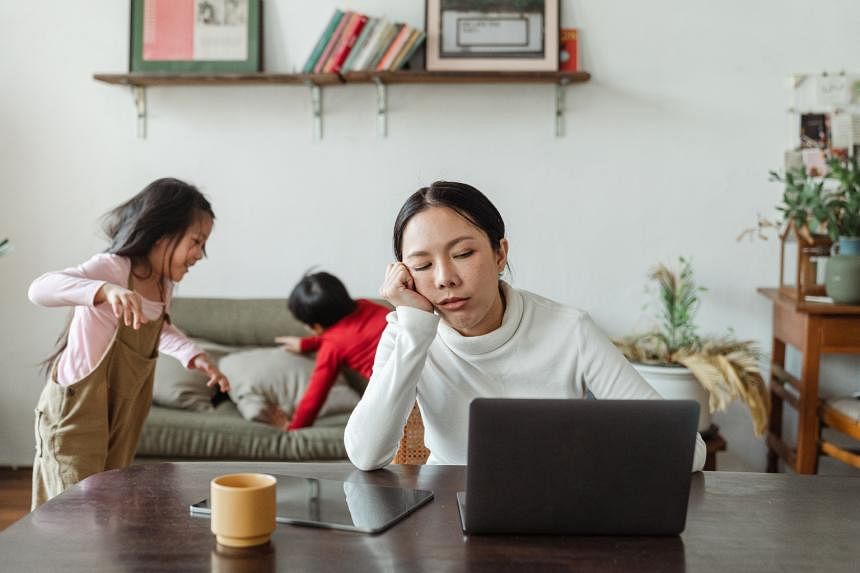In this series, manpower correspondent Calvin Yang offers practical answers to candid questions on navigating workplace challenges and getting ahead in your career.
Q: I feel mentally exhausted working from home as it is hard to switch off. What can I do?
A: You are not alone. This is one of the big downsides of working from home - being unable to properly "knock off" even after working hours, and finding it hard to avoid replying to late e-mail messages from the higher-ups.
"Before the Covid-19 pandemic, there were often specific physical domains where we apportioned our mental faculties. This may have led to a conditioning of sorts where we felt a certain way at work and where we felt a certain way at home," says Mr Praveen Nair, a psychologist and senior consultant at Raven Counselling and Consultancy.
But with hybrid work, the lines between the workplace and home tend to blur and this has put pressure on many workers.
For instance, an operations manager whom The Straits Times interviewed previously monitors performance trends and conducts meetings from his dining table. In between work tasks, he would grab quick meals and look after his active toddler while his accountant wife does video calls.
He would log on close to midnight to clear e-mails, sometimes working until 2am. Being out of the office, he felt the need to be more plugged in and found it hard to switch off when work messages appeared on his phone.
It is a plight that is being played out in countless other homes for the past two years.
While the flexibility of working from home does have its benefits, one may find himself working longer hours than usual, recent studies have found. This may put a strain on mental health in the long run.
An online poll of 1,200 respondents by The Straits Times in November 2020 found that 71 per cent have felt more stressed since they started working from home.
A more recent study of 1076 workers commissioned by the newspaper in January found that one in two Singapore employees has been grappling with longer working hours since the Covid-19 pandemic began two years ago.
The top reasons for the extended hours are difficulties drawing boundaries with work-from-home arrangements, increased tasks such as more paperwork, and covering for colleagues who have quit.
The findings are not surprising, according to observers. In other parts of the world, studies have found that Covid-19 has disrupted job schedules, with people more likely to work on weekends and outside of nine-to-five hours.
A relatively quick fix is to go back to the office more often.
A change in scenery and having face-to-face interactions with your colleagues can offer you some mental reprieve, says Singapore Human Resources Institute president Low Peck Kem.
But there could be days when you prefer to work from home due to other obligations such as childcare.
What you can do while working from home is to take breaks. You could take a trip to the kitchen to make a cup of tea, chat with your family members about non-work matters, or even rest on the couch for several minutes.
Reduce screen time if you can and try to avoid responding to non-urgent requests when it is time to knock off.
"Where possible, switch to audio calls instead of video conferences," suggests Mr Nair. "The former may take up less neural resources thereby potentially reducing exhaustion."
If you have been mostly working from home and find the transition difficult, give yourself time to ease into hybrid work arrangements. Research has shown that working from home for two days a week is best for most people.
Ms Low says: "Find a sweet spot for yourself and discuss with your manager on what is doable and most effective."
Keep a note of necessary tasks for the day, says Mr Nair. "The note can serve as a checklist that provides a greater sense of accomplishment at the end of the day."
Realise that you can take charge of your own time.
If things get overwhelming, try speaking with a professional or career counsellor.
Have a question? Send it to askst@sph.com.sg.



